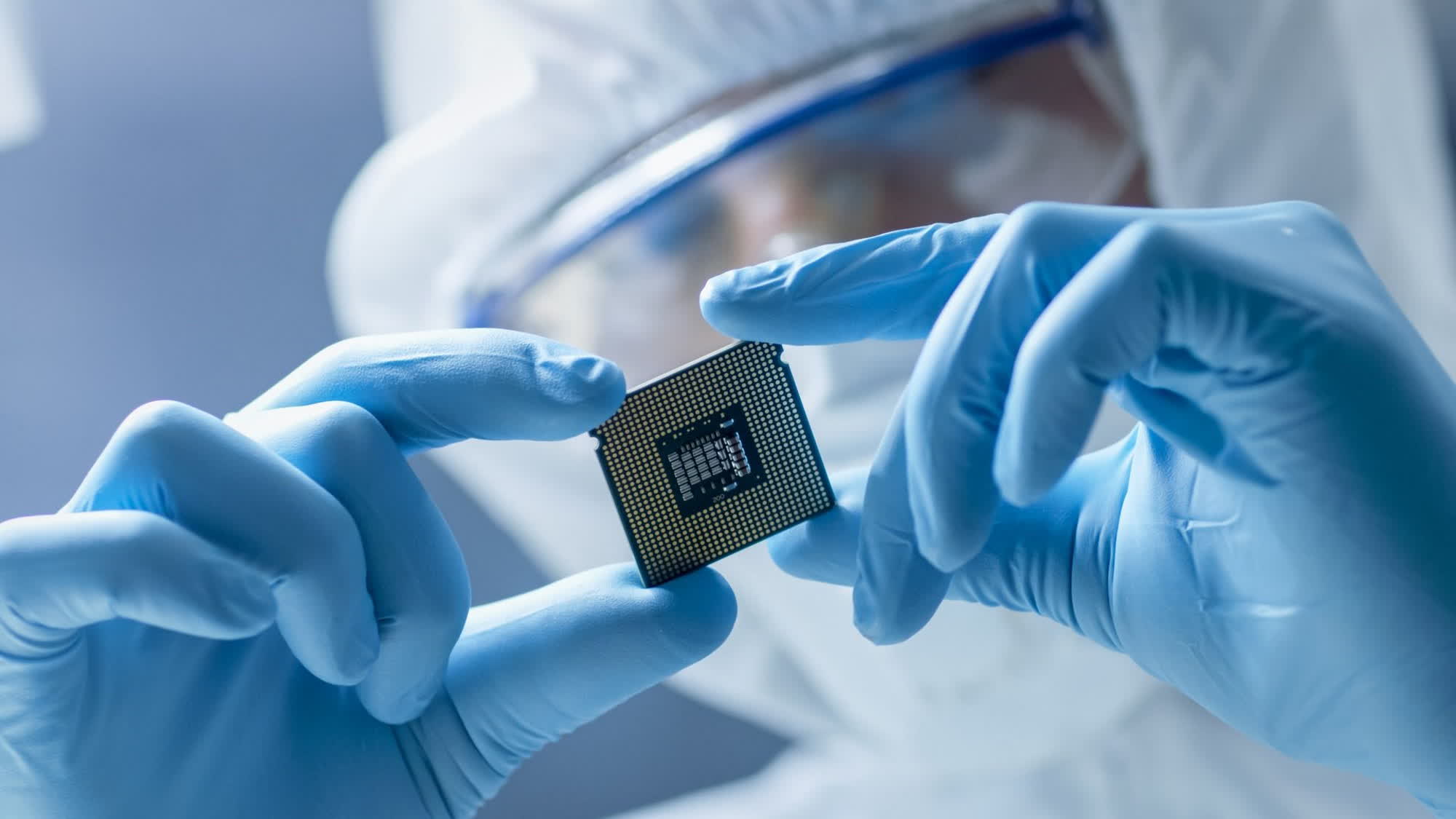[ad_1]
In context: The European Union finally agreed on a new plan to boost its microchip industry. The multi-billion investment is focused on strengthening Europe’s technological leadership, the EU said, but it could very well be an attempt to put the Old Continent on par with what market leaders are already doing right now.
After spending some months negotiating between the European Council and the European Parliament, the European Union has now officially approved a plentiful subsidy plan for its semiconductor industry. The European Chips Act will put €43 billion (roughly $47 billion) to bolster Europe’s “competitiveness and resilience” in the microchip business, promoting an effective digital and green transition powered by hi-tech technology.
Right now, Europe has a 10% market share of global chip manufacturing; with the EU Chips Act, Brussels plans to double the EU’s production capacity to 20% of the global market by 2030. The plan is also focused on strengthening Europe’s research and technology capabilities over chip advancements, building innovation capacity in design manufacturing and packaging, developing an in-depth understanding of the global semiconductor supply chain, and addressing the skills shortage by attracting new talents and growing its own skilled workforce.
Microchips already are “strategic assets for key industrial value chains,” the EU said, while the digital transformation opened new markets for the chip industry such as highly automated cars, cloud, IOT, connectivity, space, defense and supercomputers. The recent global semiconductor shortages also showed how the global supply chain has an “extreme” dependency on very few actors in a complex geopolitical context.

In 2021, President of the European Commission Ursula von der Leyen said that “there is no digital without chips.” Therefore, the new European Chips Act will ensure that the EU “strengthens its semiconductors ecosystem, increases its resilience,” and reduce its external dependencies. A Brussels representative said that since the announcement of the plan last year, Europe has already attracted more than €100 billion in new public and private investments.
EU’s Internal Market Commissioner Thierry Breton says that the EU Chips Act will give Europe the chance to take its destiny into its own hands, turning the Old Continent into an “industrial powerhouse” in the markets of the future. European Commission vice-president Margrethe Vestager highlighted the need for the Chips Act to “power digital and green transitions or healthcare systems.”
As a matter of fact, the final EU Chips Act contains some additional provisions which were not included in the initial draft. Besides funding the manufacturing of cutting-edge semiconductor technology, the plan will also cover the entire value chain with older chips and research & design facilities. The EU Chips Act is coming after the world’s powerhouses in the chip industry (USA, Taiwan, South Korea, Japan) have already approved or are in the process of approving their own subsidy initiatives. Therefore, Brussels’ money to boost EU semiconductor output won’t guarantee success.
[ad_2]
Source link